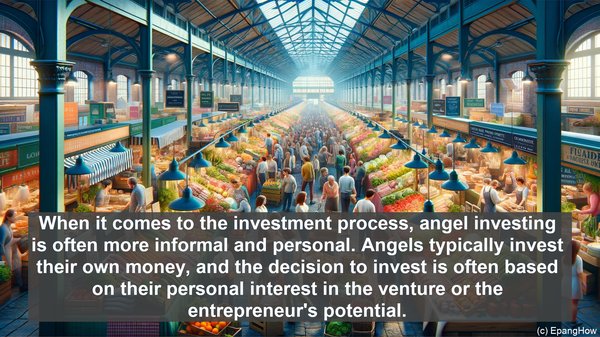Introduction: The Thriving Startup Ecosystem
Hello everyone! The startup world is a hotbed of innovation, with countless entrepreneurs striving to turn their ideas into reality. However, one of the biggest challenges they face is securing the necessary funding. This is where angel investing and seed funding come into play. While both involve injecting capital into early-stage ventures, they differ in several aspects. Let’s dive deeper into these funding options and explore their nuances.
Angel Investing: The Early-Bird Investor
Angel investing refers to the practice of high-net-worth individuals, often successful entrepreneurs themselves, investing their personal funds into startups. These individuals, known as ‘angels,’ not only provide financial support but also offer their expertise, mentorship, and industry connections. Angel investments typically occur in the pre-seed or seed stage, when the startup is still in its infancy. This early injection of capital can be a game-changer for the entrepreneur, enabling them to develop their product, hire key talent, and scale their operations.

Seed Funding: The Foundation for Growth
Seed funding, on the other hand, is a broader term that encompasses various sources of early-stage capital. While angel investments can be considered a type of seed funding, seed funding can also come from other sources such as venture capital firms, crowdfunding platforms, or even government grants. Seed funding is typically sought after the initial concept or prototype has been developed. It serves as the foundation for the startup’s growth, allowing them to refine their product, conduct market research, and build a solid customer base.
The Investment Process: Angel Investing vs Seed Funding
When it comes to the investment process, angel investing is often more informal and personal. Angels typically invest their own money, and the decision to invest is often based on their personal interest in the venture or the entrepreneur’s potential. This can make the process faster and more flexible, with negotiations happening directly between the angel and the entrepreneur. Seed funding, on the other hand, often involves more structured processes. Venture capital firms, for example, may have specific criteria and due diligence processes in place before making an investment. This can make the process lengthier but also brings a level of credibility and validation to the startup.
Risk and Return: Balancing the Equation
Both angel investing and seed funding come with their fair share of risks. Startups, especially at the early stages, are inherently risky, with a high failure rate. As an investor, it’s crucial to assess these risks and balance them with the potential returns. Angel investors, due to their personal involvement, often have a higher risk tolerance. They understand that not all investments will yield returns and are willing to take a chance on promising ventures. Seed funding, especially from institutional investors, may come with more stringent expectations and milestones. This can put additional pressure on the entrepreneur to deliver results within a specified timeframe.
Beyond the Capital: The Added Value
While the financial aspect is undoubtedly crucial, both angel investors and seed funders bring more to the table. Angel investors, with their industry experience and networks, can provide invaluable guidance and mentorship. Their involvement can open doors to potential customers, partners, or even future investors. Seed funding, especially from venture capital firms, often comes with access to a vast network of resources. This can include marketing support, legal expertise, or even assistance with future funding rounds. For the entrepreneur, this added value can be a significant differentiator in the competitive startup landscape.

